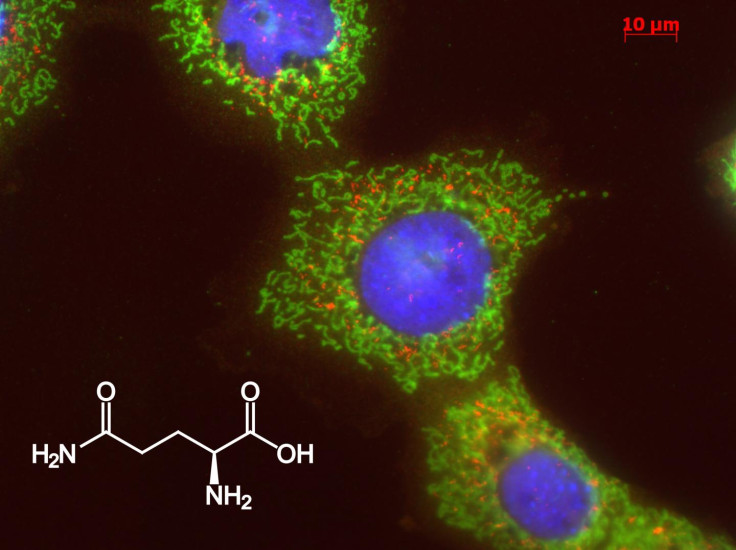Liver cancer: Blocking metabolism starves cancer cells paving way for new treatments

Scientists have found a way to block liver cancer cells' metabolism, effectively starving them and stopping their proliferation. This discovery could pave the way for the development of new targeted drugs to treat one of the deadliest type of cancer in the world.
The metabolism of cancer cells is different than that of normal healthy cells. Cancer cells – liver cancer cells included – are addicted to an amino acid known as glutamine, which fuels their proliferation.
Glutamine can be processed and broken down by an enzyme called "glutaminase". In the past scientists had tried to come up with drugs targeting this enzyme in order to block it and stop cancer cells from developing. The problem was this approach appeared to be toxic for healthy cells as well.
This latest study, led by scientists from EPFL and published in the journal Genes and Development, proposes a different strategy to stop cancer cells from using glutamine to proliferate.
"We wanted to find and target a signalling pathway specific to liver cancer cells upstream of glutaminase so that the proliferation of cancer cells would be stopped, but without harming other healthy cells", co-author Hadrien Demagny told IBTimes UK.
Blocking LRH-1
In their study, scientists identified a protein called LRH-1, which is found in the cell nucleus of healthy and cancerous liver, pancreas and ovary tissues. LRH-1 drives the development of liver tumours by helping cancer cells to convert glutamine into molecules that are directly needed for proliferation.
The researchers used mice that had been genetically modified to not express LRH-1 in the liver, and induced the development of liver cancer with carcinogenic substances. These genetically modified mice did not develop tumours, which suggests that blocking LRH-1 could effectively stop the proliferation of cancerous cells.
No negative effects were observed for healthy liver cells. "Though LRH-1 is blocked in healthy cells as well, the liver seems able to function without the protein. We did not note any negative phenotypic consequences", Demagny says.
Steps for the future
This discovery is important because it could lead to the development of new effective targeted drugs for liver cancer – a disease for which there is currently little treatment. "We could develop drugs that could stop the proliferation of cancer tumours by targeting LRH-1. They could be given in combination with other drugs that would kill cancerous cells once their progression has been stopped", Demagny explained.
Further research will focus on other types of cancers – pancreatic and ovary cancer in particular – to see if blocking LRH-1 works against tumours in these organs as well.
© Copyright IBTimes 2025. All rights reserved.






















